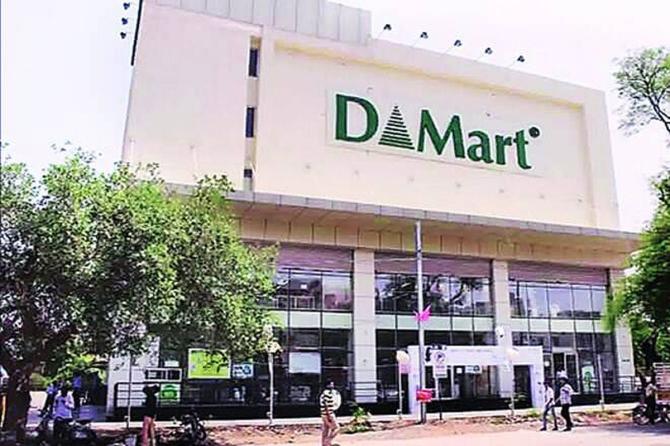Shares of Avenue Supermarts, which owns and operates the DMart stores, hit a two-year high of Rs 4,710.15 as they surged nearly 6 per cent on the BSE in Thursday’s (April 4) intraday trade after reporting strong revenue growth in the January-March quarter (Q4) of the previous financial year (FY24).

DMart, in the Q4FY24 pre-quarter update, said the company reported 20 per cent growth in standalone revenue from operations at Rs 12,393 crore, as against Rs 10,337 crore in the third quarter (Q3) of 2022-23 (FY23), driven by a 7 per cent growth in revenue per store and a robust 13 per cent year-on-year (Y-o-Y) increase in store additions.
In Q3 of 2021-22, the company reported revenue of Rs 8,606 crore and in Q3 of 2020-21, it posted revenue of Rs 7,303 crore.
Following a period of subdued store additions in the nine months of FY24 (adding 17 stores), the company added 24 stores in Q4FY24, taking the total store count to 365.
The stock of the food and grocery retailer finally settled 4 per cent higher at Rs 4,614.95, its highest closing level since January 10, 2022.
In comparison, the S&P BSE Sensex was up 0.5 per cent on April 4.
It had hit a record high of Rs 5,900 on October 18, 2021.
In the past month, DMart has outperformed the market by rising 23 per cent as compared to a less than 1 per cent rise in the benchmark index.
A sharp rally in stock price has helped DMart’s market capitalisation (mcap) surpass the Rs 3 trillion mark again.
At the end of the day, DMart is commanding a mcap of Rs 3.02 trillion.
Analysts at Motilal Oswal Financial Services believe they have seen growth in revenue per square (sq.) feet (ft) in the last three to four quarters (each quarter growing by 4-6 per cent Y-o-Y).
“In the past three years, revenue per sq. ft remained subdued due to the addition of larger store sizes and weak discretionary spending (contributing 23-25 per cent of revenue).
"However, this trend has been gradually reversing in the past three to four quarters, as evidenced by the narrowing gap between the revenue per store growth and revenue per sq. ft growth,” the brokerage firm said in a stock update.
DMart offers its products under various categories, such as grocery and staples, dairy and frozen food, fruit and vegetables, home and personal care, bed and bath, crockery, footwear, toys and games, kids apparel, apparel for men and women, and daily essentials.
Last month, global brokerage CLSA initiated coverage on the stock with a ‘buy’ rating and a target price of Rs 5,107.
“DMart is a discount retailer with the lowest operating costs, which have driven the lowest consumer prices, in turn leading to high sales velocity and better scale, further reducing costs — a virtuous loop that allows DMart to gain market share in a price-sensitive market,” according to CLSA.
DMart is rapidly scaling its private-label assortment, which the brokerage expects, will drive the next leg of share gains.
“We observed DMart increasing the number of private-label products over the past year as it tied up with more suppliers across the country for the manufacturing of exclusive brands.
"DMart now has exclusive brands in a wide range of categories from laundry to home cleaners, dishwashing, room fresheners, personal wash, oral care, hair oil, breakfast cereals, desserts, biscuits, snacks, green tea, and instant coffee, among others,” CLSA had said in its initiating coverage report.
Historically, DMart has underplayed the private-label opportunity so as not to be seen competing with large suppliers and key brands.
However, the brokerage firm said it has seen a steady increase in DMart’s private-label offerings and believes private labels can be a key differentiator, especially when compared with e-commerce and quick-commerce.
Private brands are offered at a 20-40 per cent discount to popular brands.
Disclaimer: This article is meant for information purposes only. This article and information do not constitute a distribution, an endorsement, an investment advice, an offer to buy or sell or the solicitation of an offer to buy or sell any securities/schemes or any other financial products/investment products mentioned in this article to influence the opinion or behaviour of the investors/recipients.
Any use of the information/any investment and investment related decisions of the investors/recipients are at their sole discretion and risk. Any advice herein is made on a general basis and does not take into account the specific investment objectives of the specific person or group of persons. Opinions expressed herein are subject to change without notice.












 © 2025
© 2025